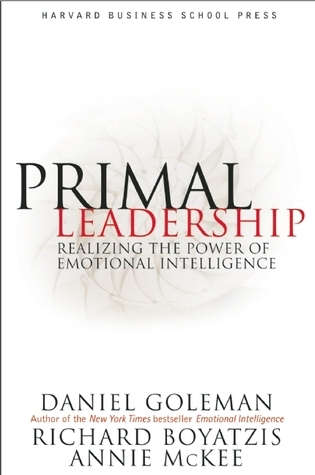Primal Leadership Book Summary
TL;DR
In 'Primal Leadership', Goleman, McKee, and Boyatzis argue that emotional intelligence is crucial for effective leadership, outlining characteristics of great leaders and strategies for enhancing emotional skills to inspire and engage followers.
What is Primal Leadership about
'Primal Leadership' delves into the significance of emotional intelligence in leadership, positing that a leader's primary role is to connect with followers on an emotional level. The authors emphasize that successful leaders articulate a vision that resonates emotionally with their team, igniting motivation and purpose. The book outlines various leadership styles and characteristics that contribute to effective leadership, providing practical steps for individuals to develop their emotional intelligence and become more impactful leaders. This work builds on Goleman's previous writings, further exploring the intersection of emotions and leadership, and is informed by extensive research into how emotional dynamics influence organizational success.
Primal Leadership 7 Key Takeaways
Emotional Intelligence is Essential for Leadership
The book posits that emotional intelligence is a key differentiator between great leaders and average ones, enabling leaders to foster trust and inspire their teams.
Different Leadership Styles
Leaders can adopt various styles—including visionary, coaching, affiliative, and democratic—each suited to different contexts and team dynamics.
Articulating a Compelling Vision
Effective leaders communicate a vision that resonates with their followers’ emotions, aligning team goals with personal values to enhance motivation.
The Importance of Self-Awareness
Self-awareness is highlighted as a foundational component of emotional intelligence, allowing leaders to understand their emotional triggers and their impact on others.
Developing Emotional Intelligence Skills
The authors provide strategies for individuals to enhance their emotional intelligence, including self-regulation, empathy, and social skills.
Creating a Positive Work Environment
A leader's emotional competence is crucial in cultivating a workplace culture where employees feel valued, engaged, and empowered.
The Emotional Dimension of Leadership
Leaders must embrace the emotional aspects of their roles, recognizing that emotions significantly influence team effectiveness and morale.
Top Primal Leadership Quotes
- 'Leadership is not about being in charge; it's about taking care of those in your charge.'
- 'The primal task of leaders is to engage people emotionally.'
- 'Emotions drive people to act, and as leaders, it is our job to tap into those emotions.'
Who should read Primal Leadership?
This book is ideal for current and aspiring leaders, managers, and organizational development professionals seeking to enhance their leadership capabilities through emotional intelligence. Readers will gain valuable insights into effective leadership strategies that foster a positive workplace culture and improve team dynamics.
Primal Leadership Best Reviews
- 'Primal Leadership' is a must-read for anyone in a management role; its insights into emotional intelligence are profound and applicable.' - Business Review
- 'Goleman's work is both enlightening and practical, providing tools that resonate with real-world leadership challenges.' - Leadership Journal
People also liked these summaries
Primal Leadership FAQs
What is the Primal Leadership theory?
Primal leadership refers to the emotional dimension of leadership, emphasizing that a leader's primary task is to connect with the emotional realities of their followers and inspire them positively.
Is 'Primal Leadership' suitable for new leaders?
Yes, this book offers valuable insights and practical strategies for both new and experienced leaders to develop emotional intelligence and enhance their leadership effectiveness.
What can readers learn from 'Primal Leadership'?
Readers will learn how to cultivate emotional intelligence, adapt leadership styles, and create a positive work environment that motivates and engages team members.
